
-
Find the right food for your petTake this quiz to see which food may be the best for your furry friend.Find the right food for your petTake this quiz to see which food may be the best for your furry friend.Featured productswith Chicken, with Beef
Hill's Science Plan Puppy Multipack Wet Dog Food with Chicken & Beef are complete premium pet foods for growing puppies from weaning until 1 year old and for pregnant and nursing dogs. Your puppy will love these deliciously smooth and savoury minced loaves, formulated for balanced nutrition and overall health.
Shop Nowwith Chicken, with BeefHill's Science Plan Mature Adult Multipack Wet Dog Food with Chicken & Beef are complete premium pet foods for mature adult dogs from 7 years. Your dog will love these deliciously smooth and savoury minced loaves, formulated to deliver the appropriate amount of energy to support the needs of adult dogs.
Shop NowAdult Dog FoodHill's Science Plan Adult Multipack Wet Dog Food with Chicken, Beef & Turkey are complete premium pet foods for adult dogs from 1 year. Your dog will love these deliciously smooth and savoury minced loaves, formulated for balanced nutrition and overall health.
Shop NowFeatured products with Ocean Fish, Chicken
with Ocean Fish, ChickenTender chicken chunks in gravy for cats, with L-carnitine and fewer calories for ideal weight management. Packed with high-quality protein, omega-6s, and vitamin E for shiny fur and healthy skin.
Shop Now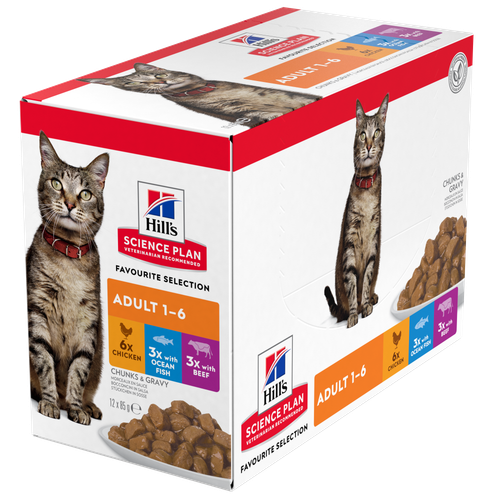 Adult Wet Cat Food with Chicken
Adult Wet Cat Food with ChickenTender chunks in gravy for cats, with high-quality protein to maintain lean muscle. With vitamin E and omega-3s & -6s for healthy skin and balanced minerals to support healthy vital organs.
Shop Now Mature Adult Wet Cat Food with Chicken
Mature Adult Wet Cat Food with Chicken
Tender chicken chunks in gravy for mature adult cats. Made with easy-to-digest ingredients, high-quality protein for lean muscle maintenance and antioxidant vitamins C+E for optimal health.
Shop Now -
Dog
- Dog Tips & Articles
-
Health Category
- Weight
- Food & Environmental Sensitivities
- Urinary
- Digestive
- Joint
- Kidney
-
Life Stage
- Puppy Nutrition
- Adult Nutrition
- Senior Nutrition
Cat- Cat Tips & Articles
-
Health Category
- Weight
- Skin & Food Sensitivities
- Urinary
- Digestive
- Kidney
-
Life Stage
- Kitten Nutrition
- Adult Nutrition
Featured articles The Right Diet For Your Pet
The Right Diet For Your PetIn people, the right diet is very important. If you are eating the wrong way for your metabolism, activity level, age and lifestyle you could end up with health issues.
Read More The Incredible Science Behind Your Pet's Microbiome
The Incredible Science Behind Your Pet's MicrobiomeLearn what your pet's microbiome is, how it contributes to your pet's gut and overall health, and why nutrition is important in maintaining healthy microbiomes.
Read More Show some love with wet foods: a great choice for pets with health issues
Show some love with wet foods: a great choice for pets with health issuesShow some love with wet foods: a great choice for pets with health issues.
Read More -


It can be tempting to share a juicy slice of turkey with your meat-loving pup, especially around Thanksgiving. But can dogs eat turkey safely? Read on to learn why it's usually not in your dog's best interest to share your turkey meat and why dogs and turkey bones are a dangerous mix.
Can Dogs Eat Turkey Meat?
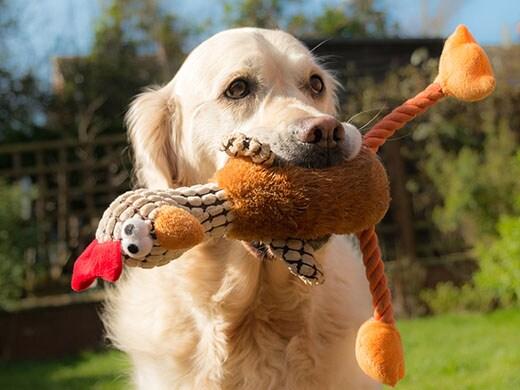
You may have noticed that turkey is a common ingredient in dog treats and dog food. Skinless, unseasoned white turkey meat that's been properly cooked is actually fine for dogs to consume. Ground turkey, as long as it's plain and has no additives, is also perfectly healthy for dogs.
The problem with feeding turkey to dogs isn't the meat itself. According to the American Kennel Club, here's why you should be cautious sharing turkey with your pooch:
- The fat in turkey skin may cause pancreatitis, a condition in which the pancreas becomes inflamed and swollen. In addition to causing your dog discomfort and pain, it can also cause serious health complications.
- The seasoning added to cooked turkey can irritate your dog's bowels and cause digestive issues, such as vomiting and diarrhoea.
- Turkey is often seasoned with garlic and onions, both of which are toxic to dogs.
- Deli meat, turkey hot dogs and other kinds of processed turkey meat contain high amounts of salt and preservatives that could be harmful to your dog's health and can upset their stomach. Only give your dog processed meat occasionally and in very small amounts — for example, you can use a small piece of turkey hot dog to hide a pill. It's unhealthy, and even dangerous, to feed your dog any type of deli meat on a regular basis, says Top Dog Tips.
Turkey Bones: Are They Bad for Dogs?
While there's no question that dogs love to chew and eat bones, doing so can actually be harmful to your pup, according to the AKC. Small poultry bones, including turkey and chicken bones, are especially dangerous. Gnawing on bones can cause:


Tasty Tips
- Injury to the mouth and throat
- Choking or throat obstruction
- Intestinal blockage
- Piercing of the stomach or intestinal lining
- Constipation or painful bowel movements
- Rectal bleeding
Some of these injuries, like intestinal blockage, may require emergency surgery to correct.
My Dog Already Ate a Turkey Bone: What Should I Do?
Even with your best efforts to prevent it, there's a chance that at some point your dog will get hold of some forbidden turkey meat or a bone and gulp it down before you can stop them. If this happens, it's important not to panic. Don't try to snatch the food away from your pup, especially if they're prone to aggressive food behaviour. If you suspect your dog may have eaten a bone, call your veterinarian for advice, suggests the AKC. They can talk you through how to reduce your dog's risk of injury.
Keep a close eye on your pet. Contact your vet right away if your dog is having difficulty or pain when attempting to defecate a few days after ingesting a bone as fragments may be causing (rectal) irritation. Other signs to seek veterinary care would include the following:
- Lethargy
- Appetite loss
- Vomiting
- Constipation or straining
- Bloody stool
- Bloated or distended abdomen
- Restlessness or difficulty getting comfortable.
If you want your dog to enjoy the taste of turkey safely, without the risk of bones or unhealthy additives, give your pup a dog treat made with turkey. You'll make them just as happy, and you'll have peace of mind knowing their health isn't in danger.


One of our staff authors prepared this article for you
Related products
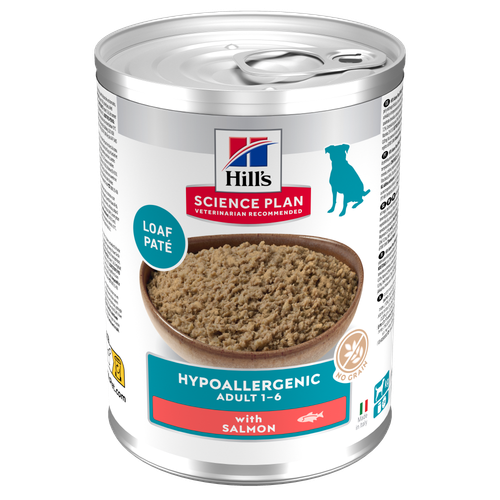
Hill's Science Plan Hypoallergenic Adult Wet Dog Food with Salmon is a complete premium pet food for all adult dogs from 1 year. This savoury tinned loaf is specially formulated for dogs with delicate skin and stomachs. It features a single novel animal protein source and is grain-free.
Hill's Science Plan Adult Multipack Wet Dog Food with Chicken, Beef & Turkey are complete premium pet foods for adult dogs from 1 year. Your dog will love these deliciously smooth and savoury minced loaves, formulated for balanced nutrition and overall health.
Hill's Science Plan Mature Adult Multipack Wet Dog Food with Chicken & Beef are complete premium pet foods for mature adult dogs from 7 years. Your dog will love these deliciously smooth and savoury minced loaves, formulated to deliver the appropriate amount of energy to support the needs of adult dogs.
Hill's Science Plan Puppy Multipack Wet Dog Food with Chicken & Beef are complete premium pet foods for growing puppies from weaning until 1 year old and for pregnant and nursing dogs. Your puppy will love these deliciously smooth and savoury minced loaves, formulated for balanced nutrition and overall health.
Related articles
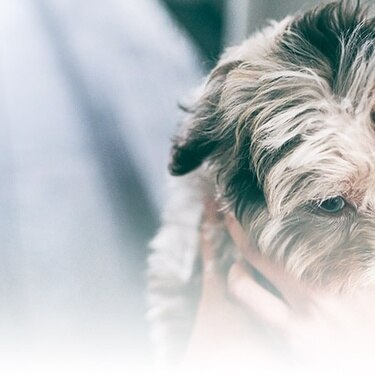
How, when and what to feed your new puppy is an important decision, learn more about the things to consider for feeding your puppy.
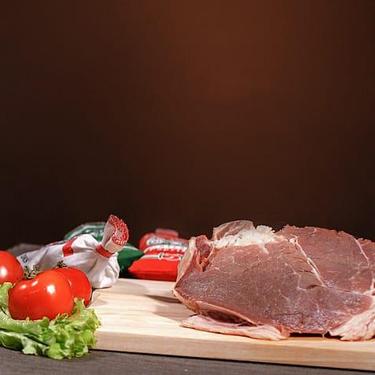
Learn about the potential health risks of a raw diet for dogs and why they aren't the best option for your pup or you.

Many human foods are dangerous to dogs. Read about 5 of the worst toxic food offenders that can kill your dog - and how much it takes to hurt them.

Learn effective tips for feeding a dog that's a picky eater and ensure proper nutrition for a finicky eater. Discover tips for pet parents at Hill's Pet UK.

Put your dog on a diet without them knowing
Our low calorie formula helps you control your dog's weight. It's packed with high-quality protein for building lean muscles, and made with purposeful ingredients for a flavourful, nutritious meal. Clinically proven antioxidants, Vitamin C+E, help promote a healthy immune system.
Put your dog on a diet without them knowing
Our low calorie formula helps you control your dog's weight. It's packed with high-quality protein for building lean muscles, and made with purposeful ingredients for a flavourful, nutritious meal. Clinically proven antioxidants, Vitamin C+E, help promote a healthy immune system.

